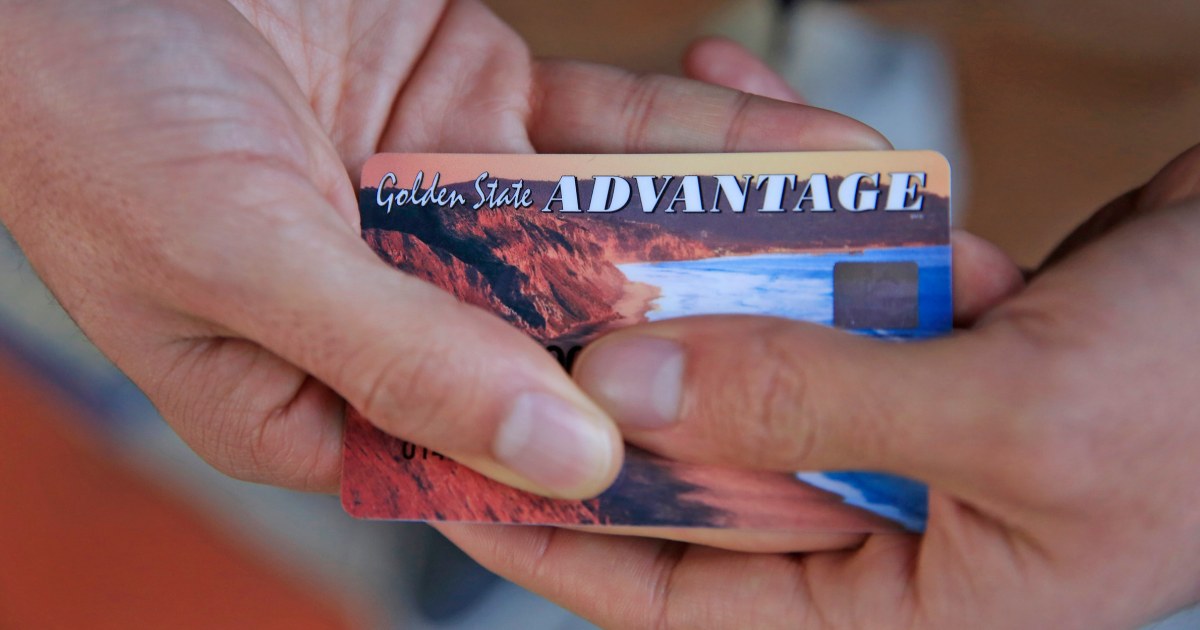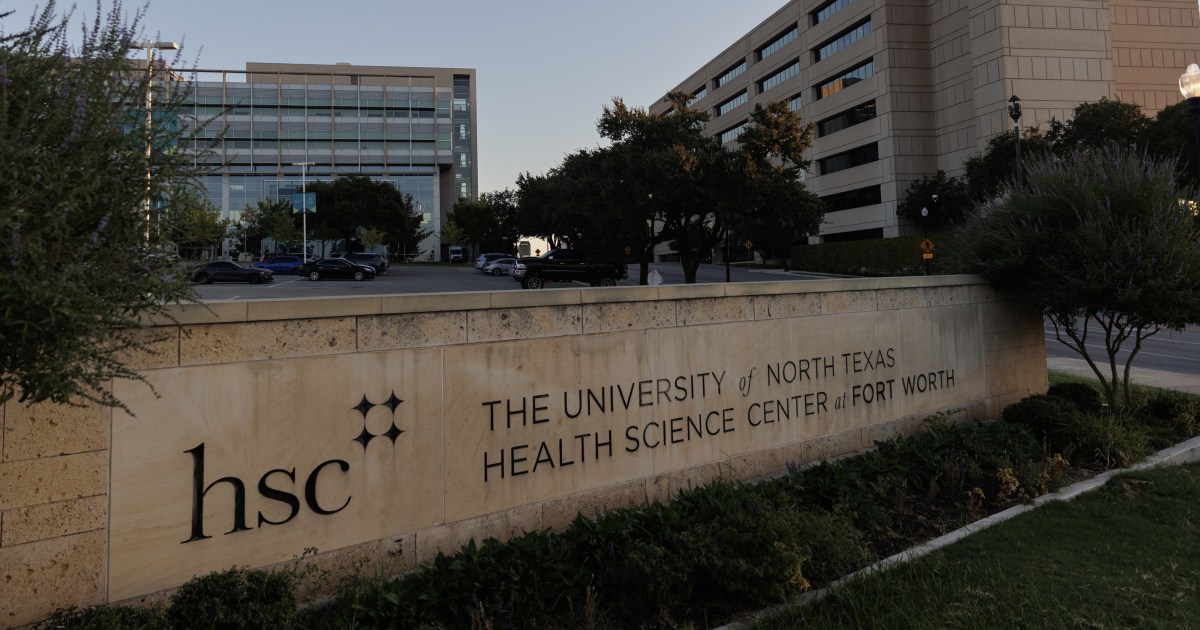Low-income families who are robbed of their grocery funds may no longer get reimbursed if Congress doesn’t act by Sept. 30.
The looming deadline comes amid a constant barrage of electronic thefts — called skimming — from participants of the Supplemental Nutrition Assistance Program, or SNAP, formerly known as food stamps. The federally funded, state-administered program helps over 41 million people nationwide purchase fresh fruit, vegetables and other foods, according to the U.S. Agriculture Department.
Since late 2022, states have been authorized to use federal dollars to pay back victims of SNAP skimming thanks to a provision passed by lawmakers. That policy runs out at the end of the month, though, and the vast majority of states have no plans to dip into their own coffers to reinstate stolen benefits if federal reimbursements end.
“Congress needs to act now,” said Rep. C.A. Dutch Ruppersberger, D-Md., who has advocated on behalf of SNAP skimming victims for years. “It’s frustrating and, frankly, very confusing that they don’t view this as a priority.”
Despite the directive expiring, SNAP skimming continues to be a pervasive problem. USDA data shows that more than $61.5 million in federal reimbursements were given to nearly 125,000 households nationwide during the 2023 fiscal year and the first part of the 2024 fiscal year, numbers that Ruppersberger said are almost certainly an undercount.
While Ruppersberger is spearheading a bipartisan effort to extend the reimbursements for SNAP skimming victims, he said prospects look dim for a stand-alone bill passing before the 30th, especially since Congress has been more focused on trying to avert a government shutdown before Oct. 1.
Still, the issue has caught the attention of the Biden administration, which on Monday wrote a letter excoriating a proposed continuing resolution to keep the federal government running. Along with other criticisms, the letter chided the CR for “failing to protect nutritional assistance for vulnerable families whose benefits are stolen.”
A complex crime
Skimming is not unique to SNAP participants, who receive their funds on debit-like cards with magnetic strips that are swiped at cash registers. But unlike debit cards, their electronic benefits transfer cards lack embedded microchips and other security features like contactless payments that prevent theft. They also do not have permanent federal consumer protections that enable them to have stolen funds replaced.
No states currently issue SNAP EBT cards with microchips, a vulnerability that skimmers exploit through sophisticated tactics, including by putting plastic keypad overlays that are nearly identical to card-swiping terminals on top of the terminals themselves.
The hidden devices copy EBT card information, including the user’s PIN. (See a picture of skimming overlays here.) Then the information is put onto fake cards, called clones, to drain the individual’s benefits.
Some lawmakers have expressed exasperation at the slow progress toward making the cards more secure. Sen. Ron Wyden, D-Ore., proposed a bill in March that would require chip-enabled SNAP EBT cards and other safeguards, but the bill has yet to advance.
“This is a textbook government failure,” Wyden said in a phone interview. “This is a security weakness that basically invites criminals to steal food from families in need and rip off tax dollars.”
Two states have pledged to switch to EBT cards with microchips. In California, a spokesperson for the state’s Department of Social Services said that it plans to move to chip cards beginning in early 2025. And in Oklahoma, a spokesperson for Oklahoma Human Services said its state plans on implementing chip cards next summer.
The updated technology could significantly lower theft. Oklahoma Human Services said that statewide, more than 2,600 total households have had more than $1.4 million in benefits replaced between July 1, 2023, and June 30, 2024, due to skimming or other scams.
In California, which is one of only a handful of states that uses its own funds to replace stolen SNAP benefits when federal reimbursements are not available, nearly $120 million in reimbursements have been issued since late 2021. The figure includes reimbursements from both federal and state dollars, according to the state’s Department of Social Services.
In a statement to NBC News, USDA deputy undersecretary for food, nutrition and consumer services Cindy Long called SNAP a “vital nutrition safety net” and said “USDA is acting on multiple fronts to combat skimming from occurring in the first place, including forthcoming regulatory steps.” Long also urged Congress to extend federal reimbursement for stolen benefits.
The federal provision has some limitations about who is eligible for reimbursement and has not been a “perfect solution,” said Ashley Burnside, a senior policy analyst at the non-profit organization Center for Law and Social Policy. But it has helped a lot of families.
“SNAP recipients are doing nothing wrong. Skimming is an incredibly complex crime that can be very hard to catch,” she said. “And it’s not SNAP recipients’ fault that the card technology is outdated.”
Gina, a SNAP participant in Boston who asked that her last name be withheld because she was worried that speaking publicly about her finances could hurt her career, was skimmed in July. She said she discovered that thieves had taken about $960 from her account, leaving her with little over $1, when she tried to pay for an online grocery order.
A single mother of three, Gina said that when she found out her benefits were gone, she felt “sheer panic — just shock and feeling kind of violated, too.”
The funds were reinstated after a week. Before then, “I basically spent the whole week standing in line at food pantries, praying that they would replace my benefits,” Gina said.
Even a brief lapse in SNAP benefits can be catastrophic for many households, said Vicky Negus, policy advocate at the Massachusetts Law Reform Institute, a nonprofit poverty law and policy center that has fought for reimbursement for skimming victims statewide. Negus said it can cause a ripple effect, threatening people’s ability to cover their rent or utility bills. She has also heard from parents who have had to skip meals so they can feed their kids.
If Congress does not extend the federal reimbursements after Sept. 30, most states won’t pick up the tab. Besides California, just a few states use state dollars to reinstate skimmed SNAP benefits, according to the American Public Human Services Association, which represents state and local human services agencies. Washington, D.C. also uses its own funds, the association said.
“If Congress doesn’t take that opportunity, you will have an extremely small number of families in an extremely small number of states who are able to connect to state replacement, and families in all other states will be out of luck,” Negus said. “It’s inequitable.”
Gina said that she worries that she might get skimmed again. In addition to federal reimbursements being extended, she said she hoped EBT card security would be updated soon.













